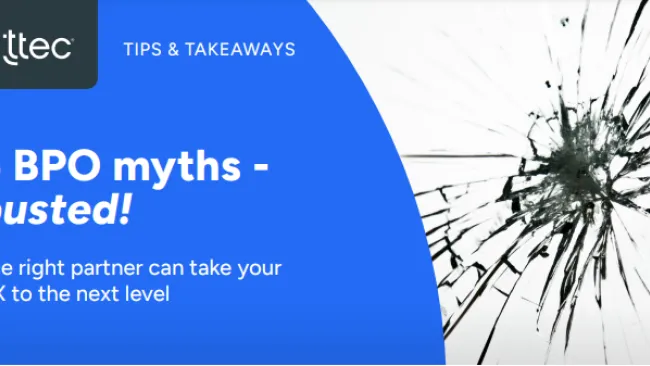Fraud has always been a damaging, costly part of doing business – and it’s only become a bigger problem for contact center operators as they grapple with a surge of calls amid the pandemic and con artists become more savvy.
Businesses have dealt with unprecedented numbers of calls during COVID-19. Some saw call volumes jump by more than 800% in the second quarter of 2020 alone, according to a report by Pindrop, and an average of one out of every 1,074 calls fielded by agents last year was fraudulent.
Further complicating things, many contact center associates are now working from home, which can potentially expose brands to even more fraud. It’s imperative for companies to be vigilant on multiple fronts: to anticipate, detect and mitigate external fraud attempts, but also to guard against fraud perpetrated by associates who suddenly have a seemingly more-relaxed work environment.
There are several things brands can do to safeguard against fraud, protecting themselves and their customers in the process.
Set fraud prevention expectations for associates
It’s relatively easy to keep tabs on associates working in a brick-and-mortar center, but much harder to truly know what they are doing when they’re working from home, said Sharron Stillwell, executive director of operations at TTEC.
An agent working out of his living room, for instance, could be taking down sensitive information like a customer’s credit card number, while family members or guests are in the room.
“That’s not protecting anyone’s information,” she said, noting anyone within earshot of personal or financial information could use it for potentially fraudulent purposes.
Work-from-home associates need to know that they are still accountable even though they're not in a traditional center setting, she said.
Technology can allow contact center leaders to log into associates’ computer systems, giving them a first-hand look and listen at what associates are doing, how long they’re taking to complete tasks, whether they are wasting time on calls, and other performance indicators. These tools can glean valuable insights, but associates should be made aware if they’re being used, Stillwell said.
“It’s really important to put those policies in front of the leaders and the associates as soon as possible,” she said. Setting expectations about what companies expect from associates – and how companies will monitor to make sure those standards are being met – plays a key role in helping reduce fraud.
It’s also important to be clear with associates about what their job entails; call center leaders shouldn’t hesitate to explain that associates are expected to work in noise-free environments and handle sensitive information appropriately.
“As long as you are level-setting up front, the associates are comfortable with it,” Stillwell said, adding it can even bring added comfort to some, knowing the company is on top of things. “Once they see that you’re kind of setting that level of expectation upfront, it’s almost like it takes some trepidation from them.”
Have clear procedures in place
Policies and procedures are critical when it comes to setting and communicating expectations, Stillwell said.
“It’s so important to have processes and procedures in place that address, from the executive level on down, what you are going to do to ensure that you’re getting ahead of it [fraud],” she said.
Standard operating procedures (SOP) should clearly outline what gets communicated to whom when fraud is detected, and what will happen every step along the way.
Companies should implement a “clean desk” policy for associates working at home, said Amanda Schober, director of service delivery at TTEC. Such policies, which require employees to clear their desks of all papers at the end of each day, helps ensure – especially in an at-home environment – that sensitive information isn’t left out somewhere where friends, family members, or guests could see it.
Clean desk policies are especially important for companies in the finance, insurance, and retail industries, Stillwell added. Companies may even want to consider using webcams to give leaders the ability to physically see associates’ workspaces, she added.
No one wants to think about their own associates perpetrating fraud, but it does happen: whether it be placing orders for family members, timecard fraud, working from an unauthorized location, or other issues. Fraud doesn’t just jeopardize companies’ relationships with customers; it can also affect internal relationships and operations and needs to be stopped in its tracks, Stillwell noted.
“Having an SOP and having those templates to address how you’re [handling] fraud becomes uber-important,” she said.
Partner with TTEC to prevent fraud
There are multiple factors to combating fraud: detection, mitigation, prevention, and education. TTEC helps clients cover them all.
As fraudsters get smarter, companies need to become smarter too. Having a partner like TTEC, which specializes in this work, is a huge asset, said Tammy Chasteen, director of process improvement for TTEC.
Often, company leaders and employees first need to be educated about fraud: what constitutes it and what it can cost a brand. TTEC starts there, and then works with companies to create quick and manageable ways to detect and identify fraud, and create a quick response that kicks in when fraud is discovered, Chasteen said.
“Now that we have a large at-home workforce...we are working on things we can do to shore up a safer environment,” she said.
Humanify@home is TTEC’s remote contact center associate solution that merges the quality and security of an on-site center with the flexibility and cost structure of a work-from-home model. Companies can scale up or down every time business needs change with industry-leading training solutions and a rapidly deployable workforce.
Having the right prevention and mitigation tactics in place lets brands spend less time worrying about fraud and more time growing their business.

















